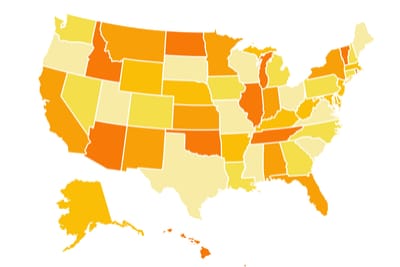Online degrees and e-learning are hot these days. More and more universities are offering Internet courses, and Web-based self-study websites (including Magoosh) are thriving. In this new digital era, more and more aspiring teachers are asking themselves “Can I get a teaching certificate online?” I’m happy to tell you that the short answer to that question is “yes.” The longer answer to that question is more of a “Yes, but….” Read on to learn about the key features, advantages, and disadvantages of getting your teaching certificate online.
Online degree programs and certificates
Online degrees and post-baccalaureate certificates offer much more flexibility than traditional programs, while providing comparable access to licensure and employment within the United States. Web-based teaching degrees can be especially appealing to mid-career professionals who want to transition to teaching. They’re also an attractive option for working classroom aides who want to get licensed for full teaching positions.
Be cautioned, however, that online degrees do not offer complete flexibility. Many online degree programs include “live” virtual courses where students have to log in, use a microphone and webcam, and show up for class via teleconference. Moreover, online degree programs are held to the same state and federal standards as traditional programs. This means that online teaching degrees have the same fieldwork requirements as traditional degrees. So online teachers-in-training will still need to visit schools and complete a half-year of student teaching in person at a school.
One other issue to be aware of is that online teacher training programs tend to operate at a national level, and may not always have a close relationship with the licensing board in your state. Licensing standards are at least a little bit different in each state, and a given online teaching program may or may not qualify you to teach where you currently live.
More worrisome, it’s not uncommon for admissions representatives to give our misinformation. Admissions recruiters at online universities have been known to tell prospective students that a degree will allow them to get licensed in their home state when in fact it won’t. Whether this is a misleading sales tactic or an honest mistake is hard to tell. Either way, you’ll want to go with a reputable university that has good relationships with individual state licensing boards. Currently, the University of Phoenix and Western Governor’s University have the particularly good reputations for state level-licensing and knowledgeable staff. And of course, online licensure programs at state schools always work well with their home states.
Online alternative certification
Most alternative certification programs have people teach full time while they earn a degree. By necessity, these kinds of programs offer flexible training that can be done outside of normal teaching hours. To facilitate this, a number of alternative certification programs are web-based.
The typical model for online alternative certification can be seen with iTeach and ABCTE. Both of these organizations offer online, self-paced non-university-based teacher training. Because these programs have to meet the same state standards as university teacher licensing pathways, they also require fieldwork. iTeach, ABCTE and other comparable online alternative certification schools ask participants to seek out their own student teaching experiences or find themselves paid full-time positions prior to actually getting licensed.
In other words, fieldwork is required, but you’ll need to find your own fieldwork. If you don’t, the alternative certification courses you take won’t actually lead to licensure. The online certification model puts all the fieldwork burden on prospective teachers. This can be challenging, but it actually does work for a lot of teachers. To see if this option is right for you, call local school districts and ask them if they might be willing to hire you or let you student teach for a term as part of an alternative certification program.
Advantages and disadvantages
For most teaching jobs in the US, online university-based certification gives you the same qualifications and the same job prospects as regular classroom training. Web-based alternative certification is similarly equal to “offline” alternative certification.
Ultimately, online certification options offer more flexibility than “offline” ones, but do not offer absolute flexibility by any means. While the classes themselves usually involve evening and weekend webconferences or entirely asynchronous coursework, the fieldwork portion of the training is rigid and demanding. Student teaching is a full-time job, set during regular business hours, and unless you’re able to get a full-time teaching job before you get licensed, it’s an unavoidable requirement.




